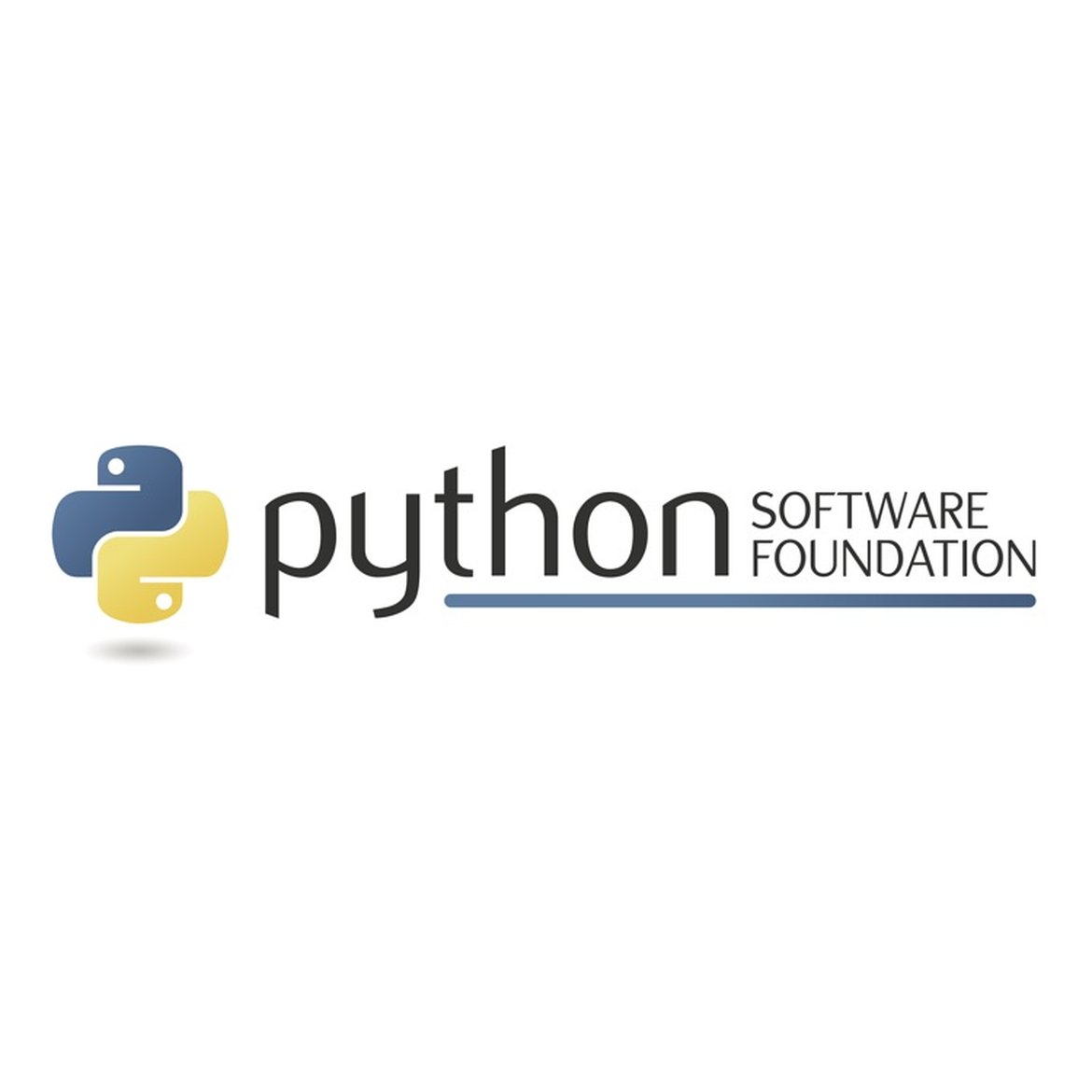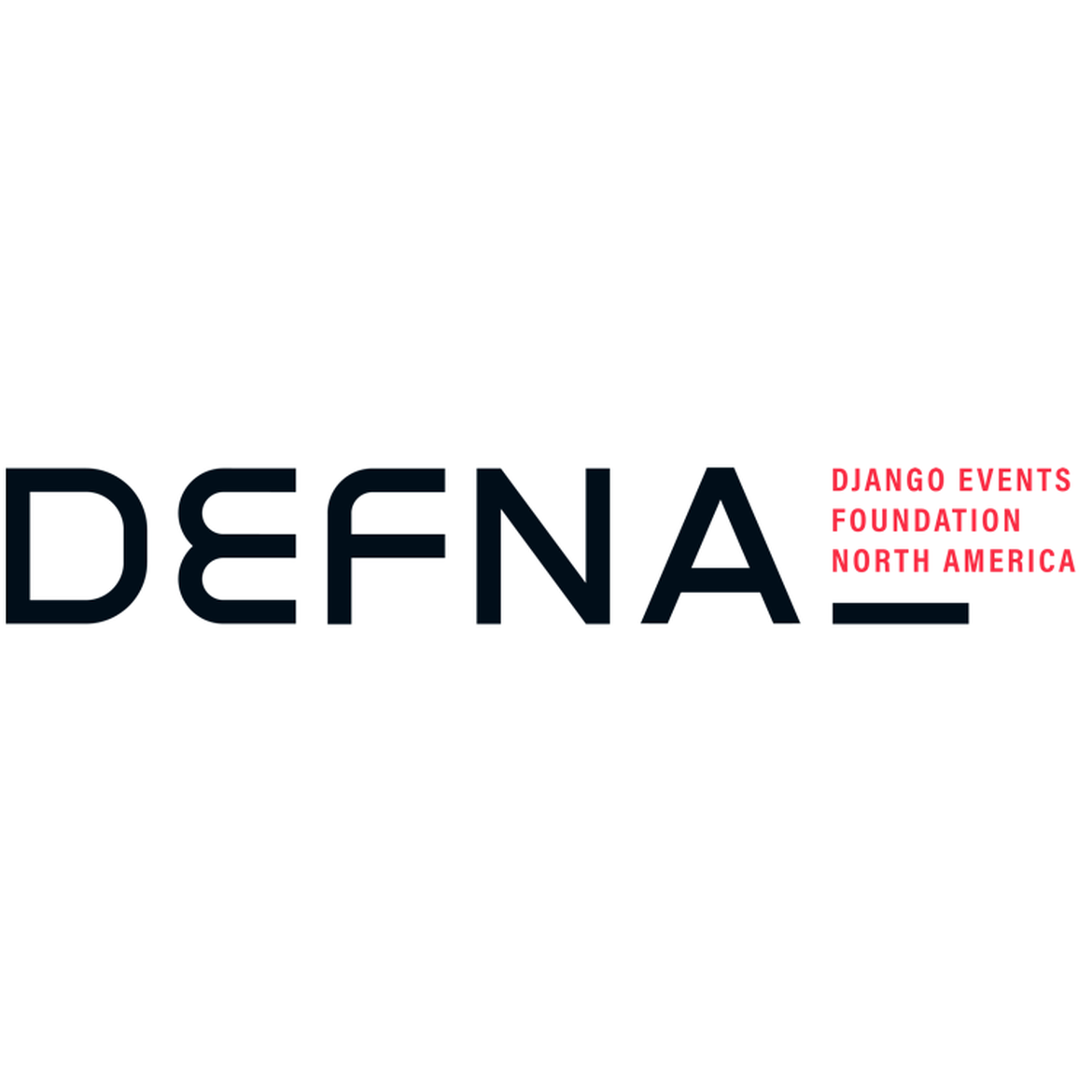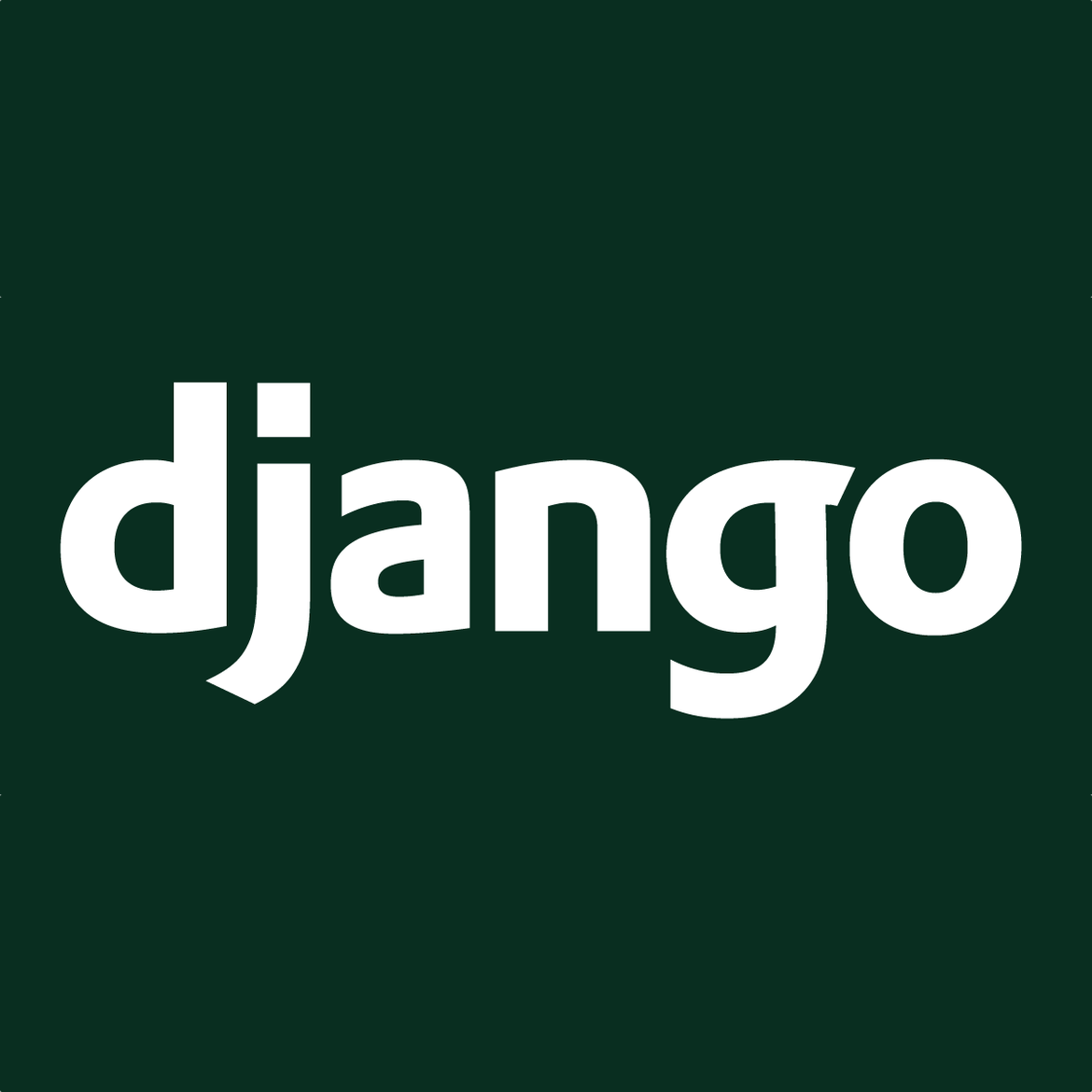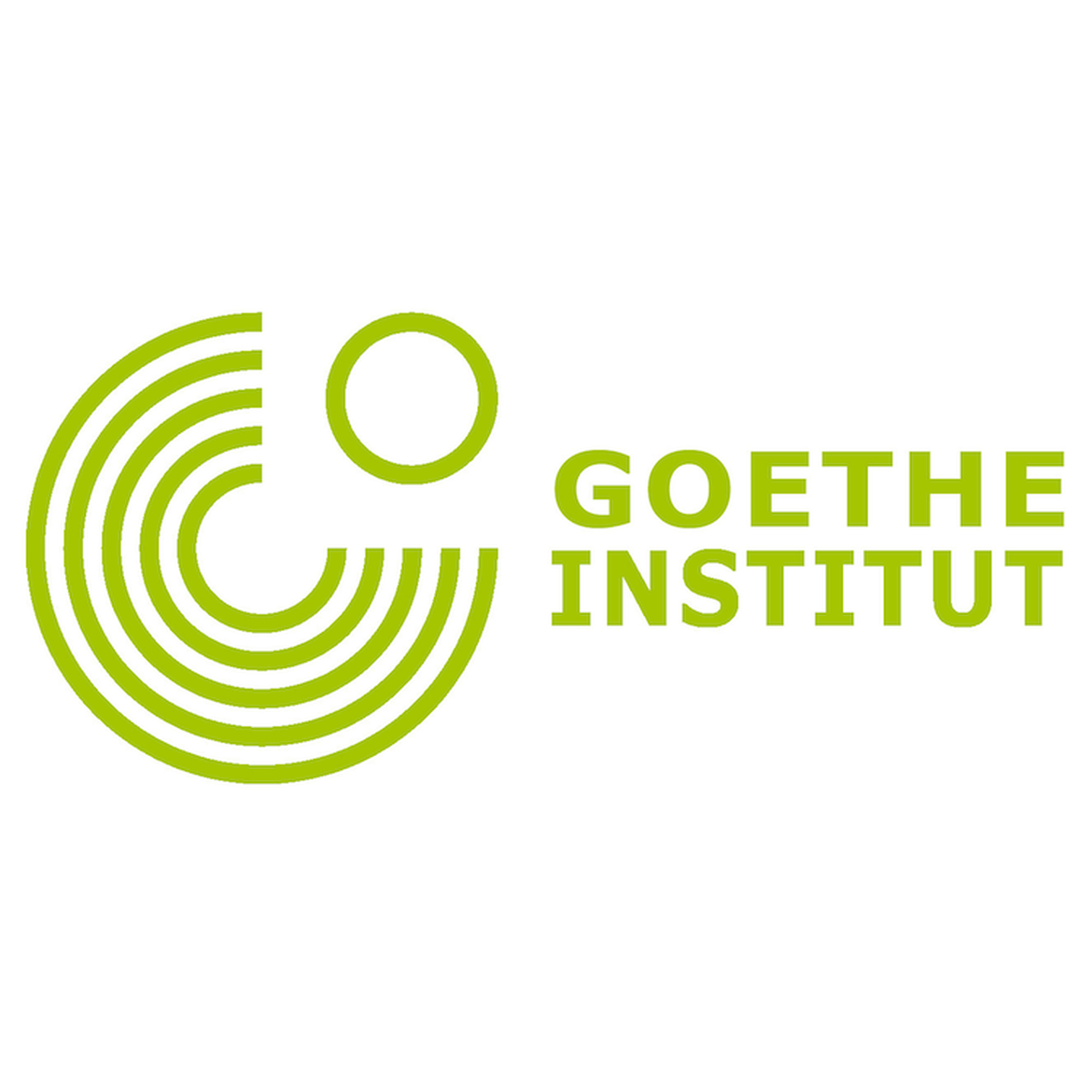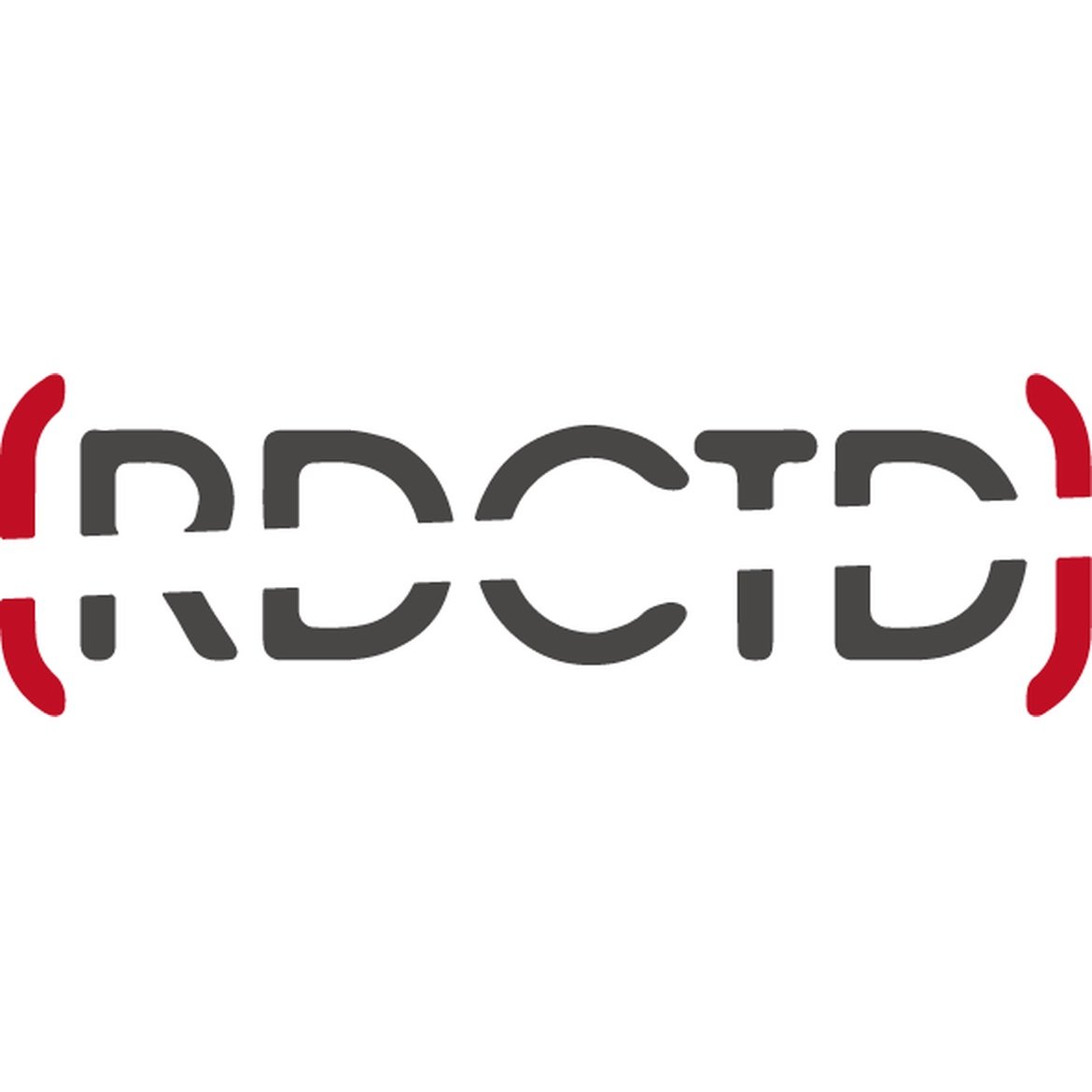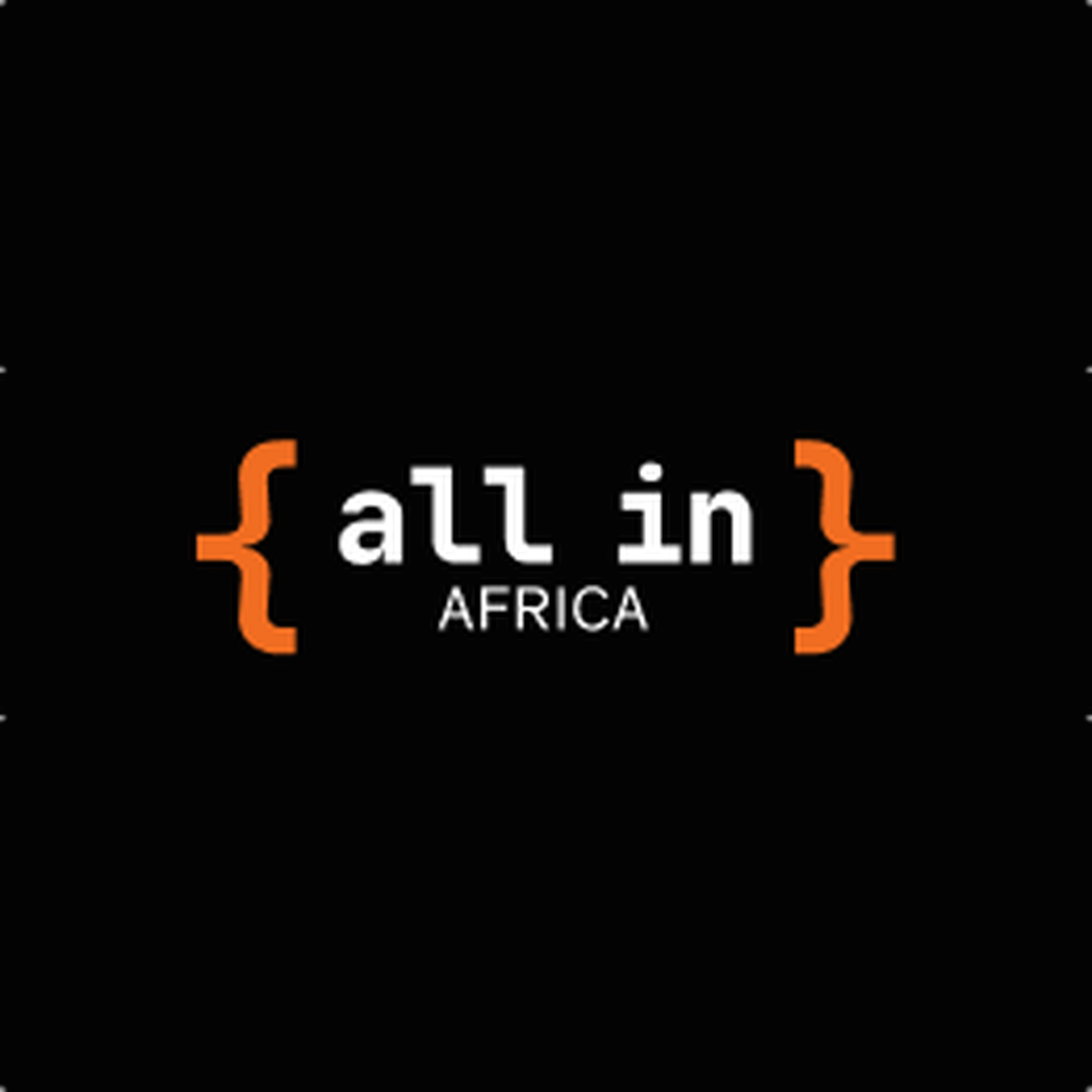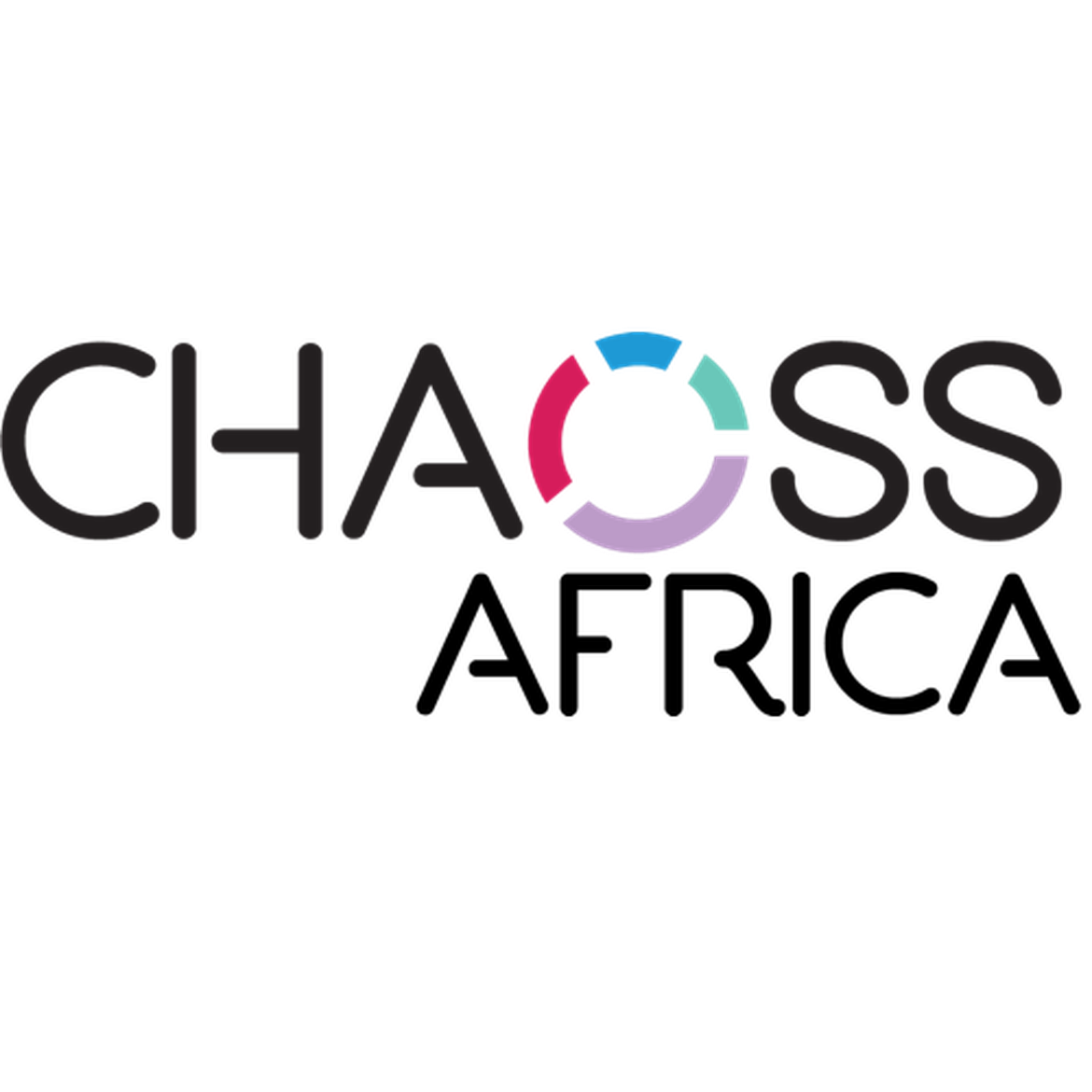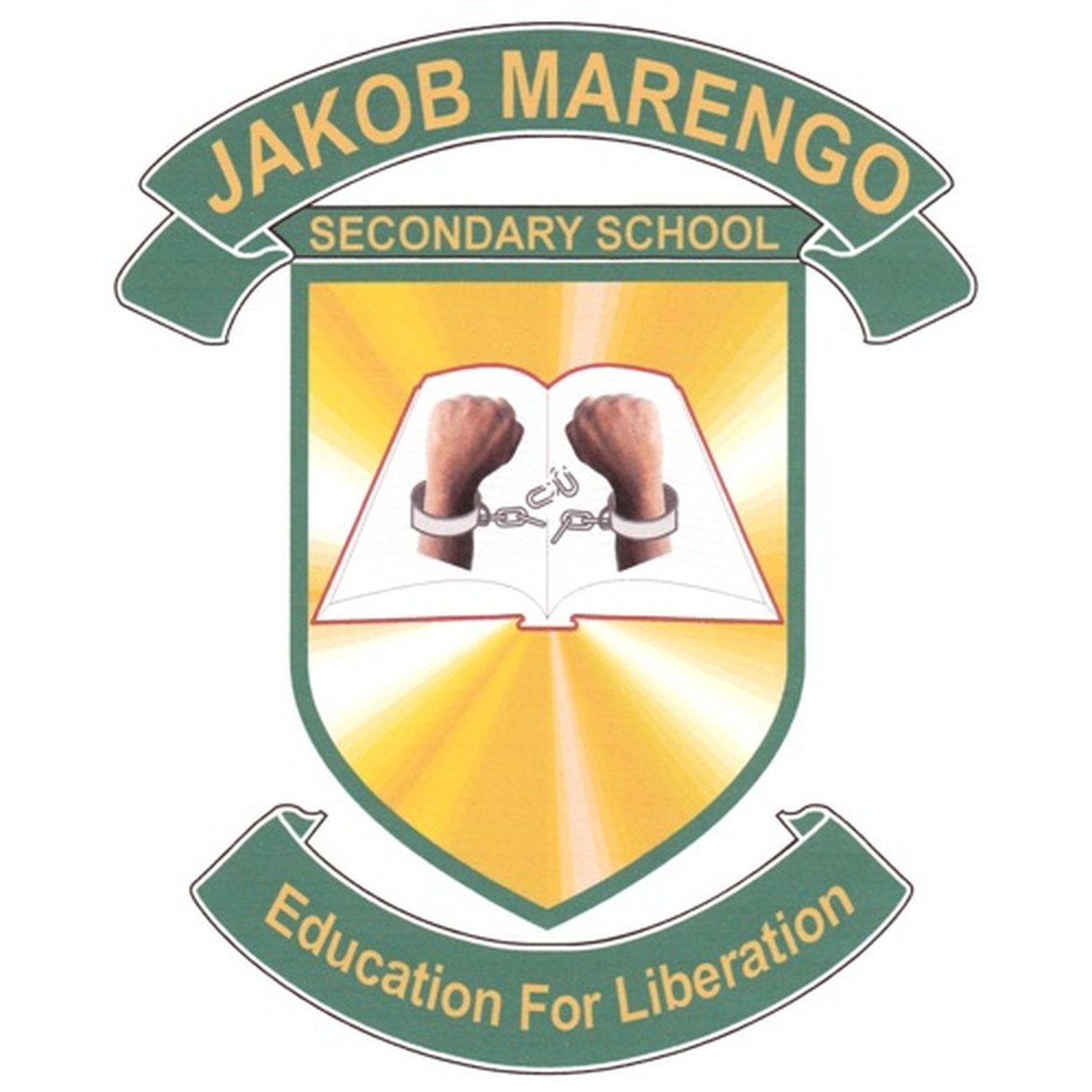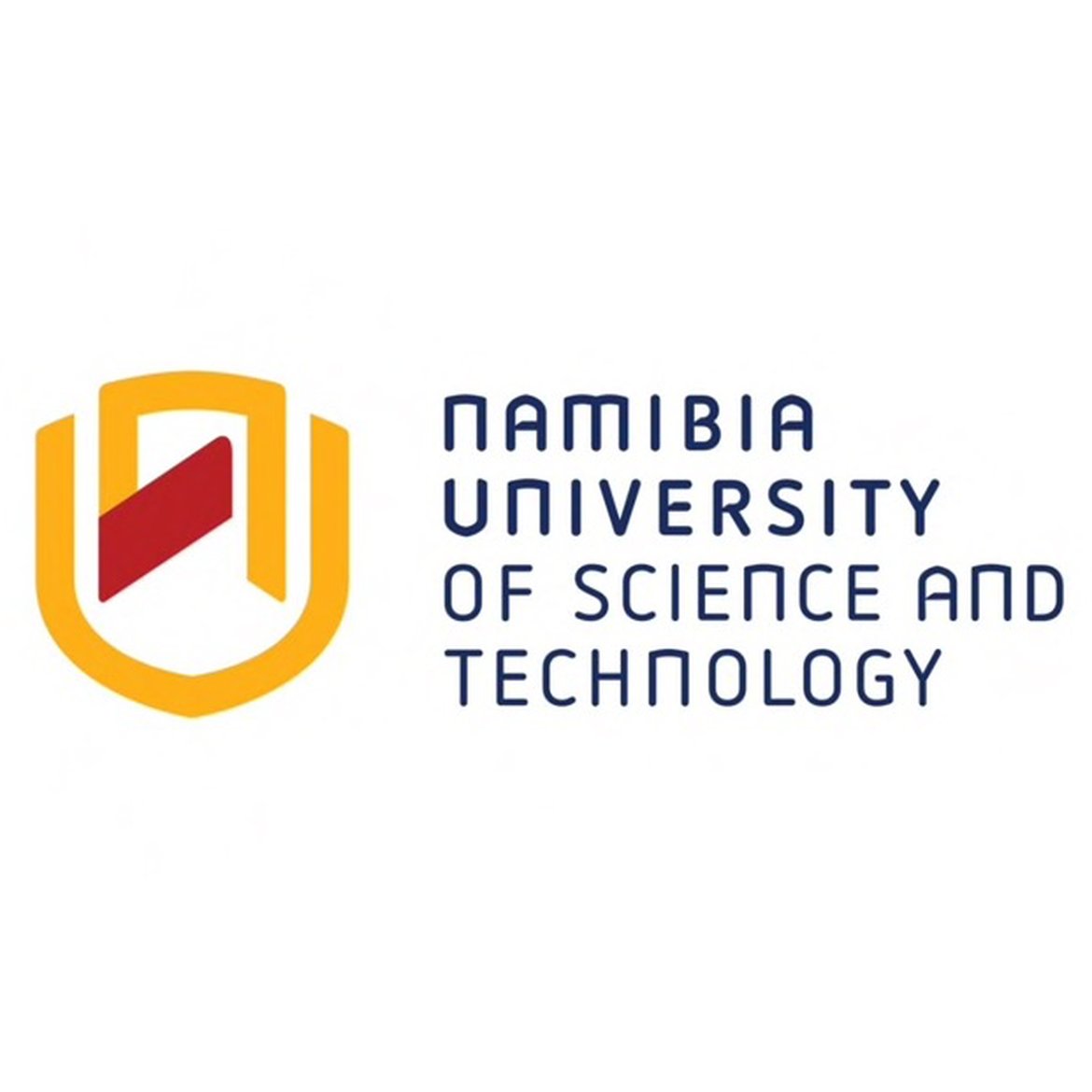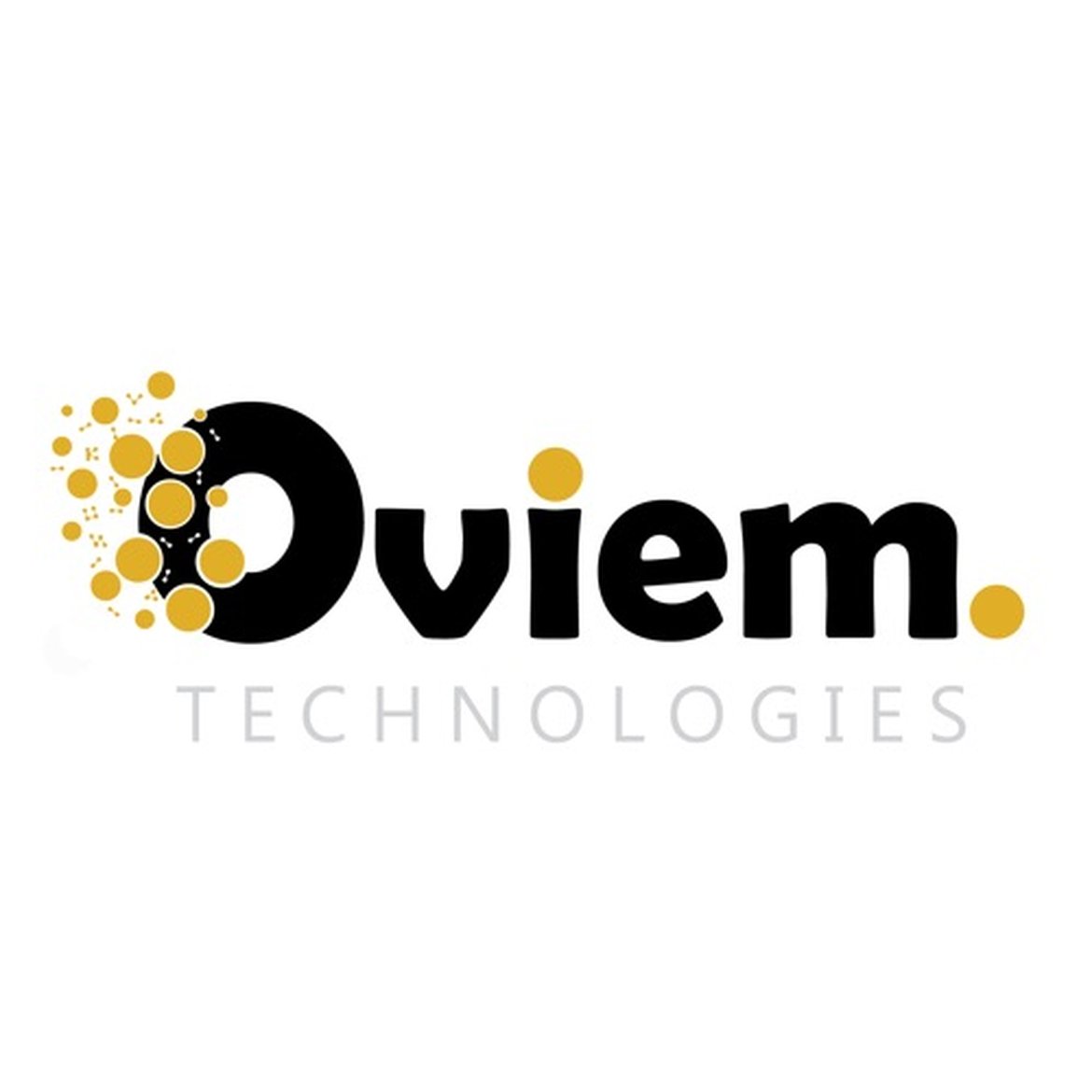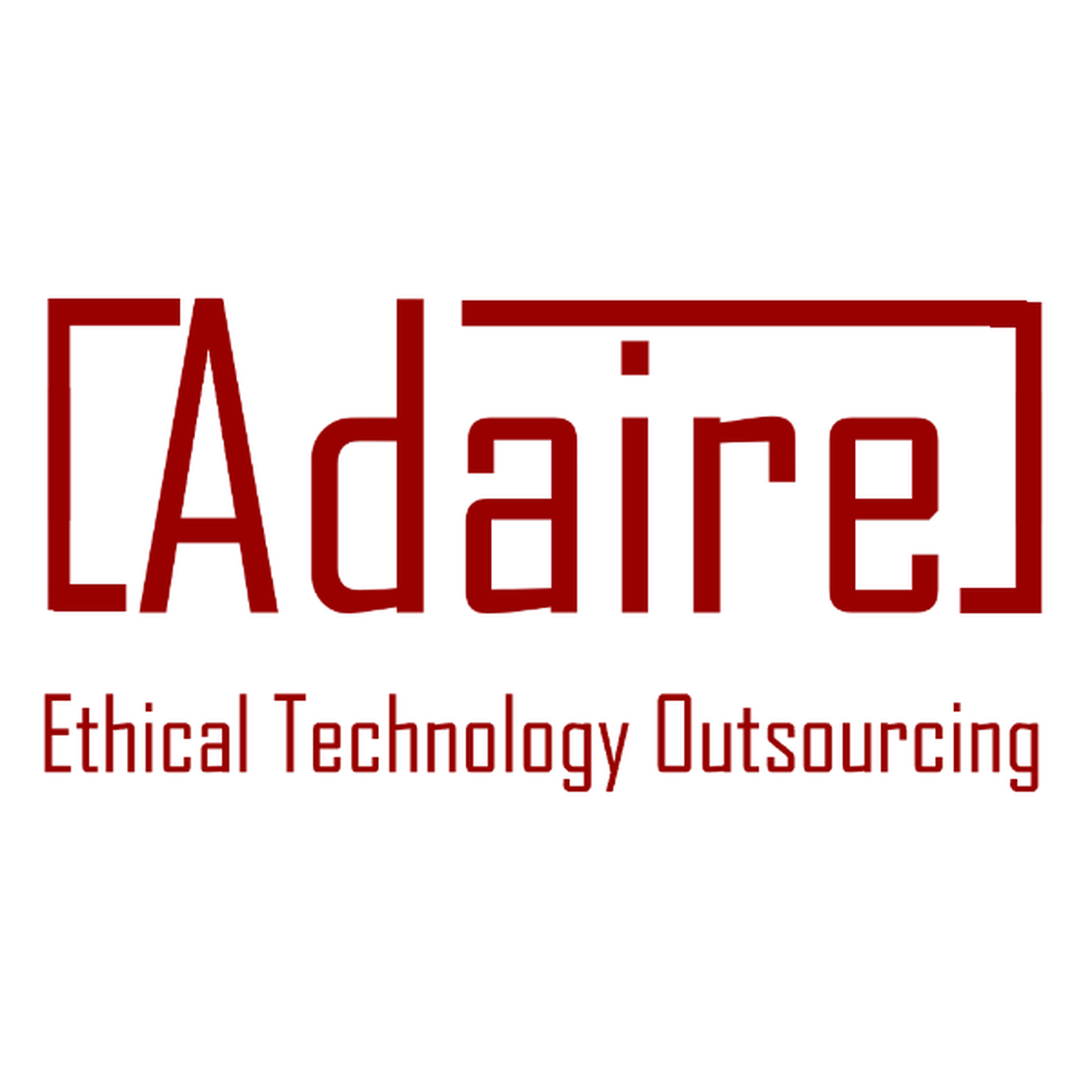Looking back at PyCon Namibia 2024
PyCon Namibia 2024 took place 4th-7th March, in Windhoek.
At the ninth edition of Namibia's annual PyCon, attendees travelled from across the world to be part of the event. We continued our effort to to develop the software skills of Namibian programmers and help new programmers discover Python.
This year, two dedicated Education Days placed Python right in front of high school and university students.
PyCon Namibia 2024 in numbers
- the ninth edition of Namibia's annual Python conference
- 4 days of talks and workshops
- more than 110 attendees for our main conference days...
- ... plus another 50 or so students at NUST and JMTC for our two education days
- attendees from at least 15 different countries in Africa and beyond
- about one half of our attendees and one third of our presenters were women
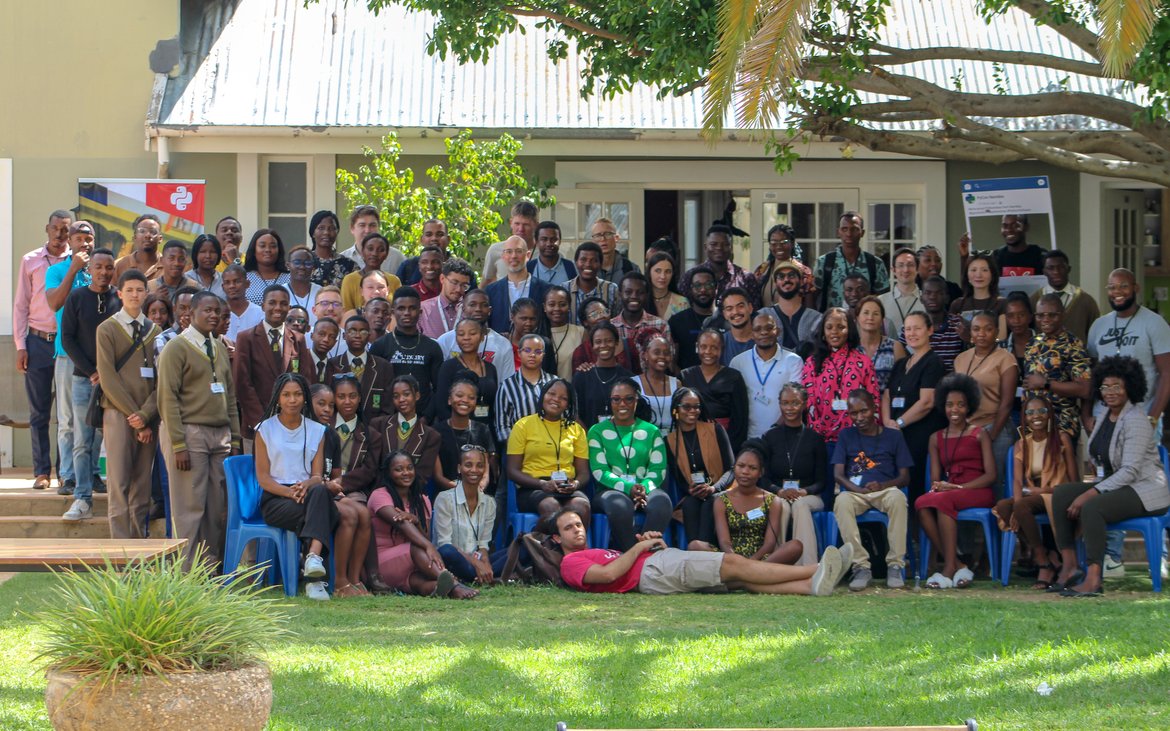
Day 1 - with students at NUST
Our first day was held at Namibia University of Science and Technology, intended specially for the benefit of Bachelor’s and Master’s degree students in computer science and related subjects.
Holding the sessions at NUST was a practical example of "meeting people where they are".
The programme of talks was aimed at expanding their horizons, and showing the opportunities available to them in Python and through open-source community participation.
We also held workshops: basic Python for newcomers, and data science and machine learning for those with some knowledge already.

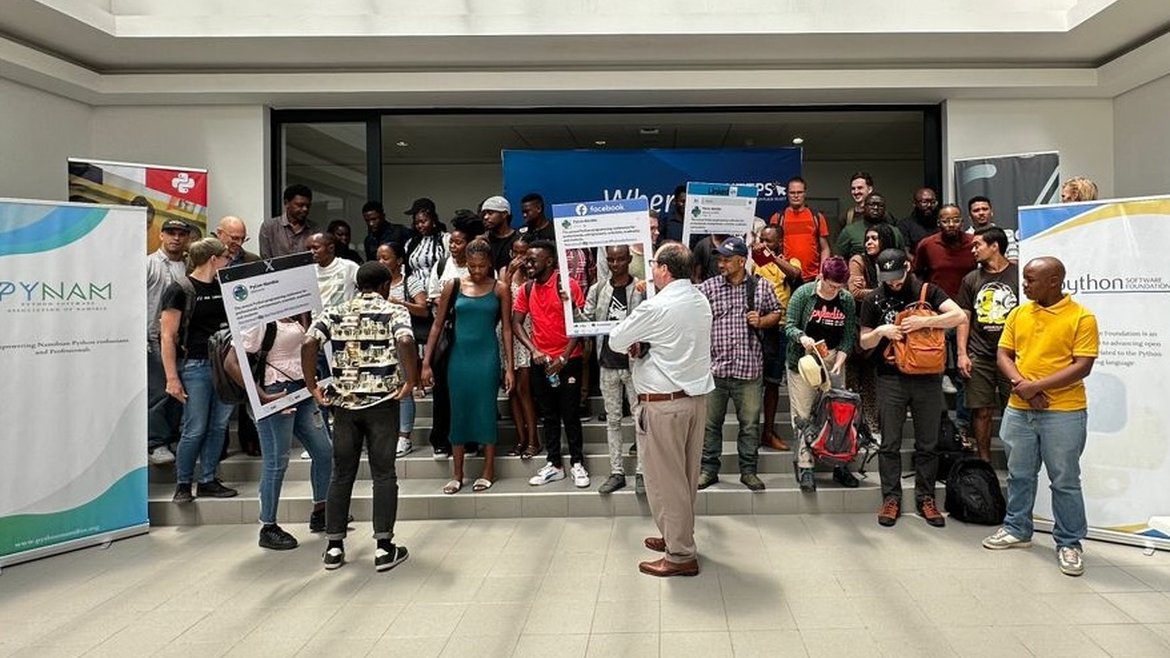
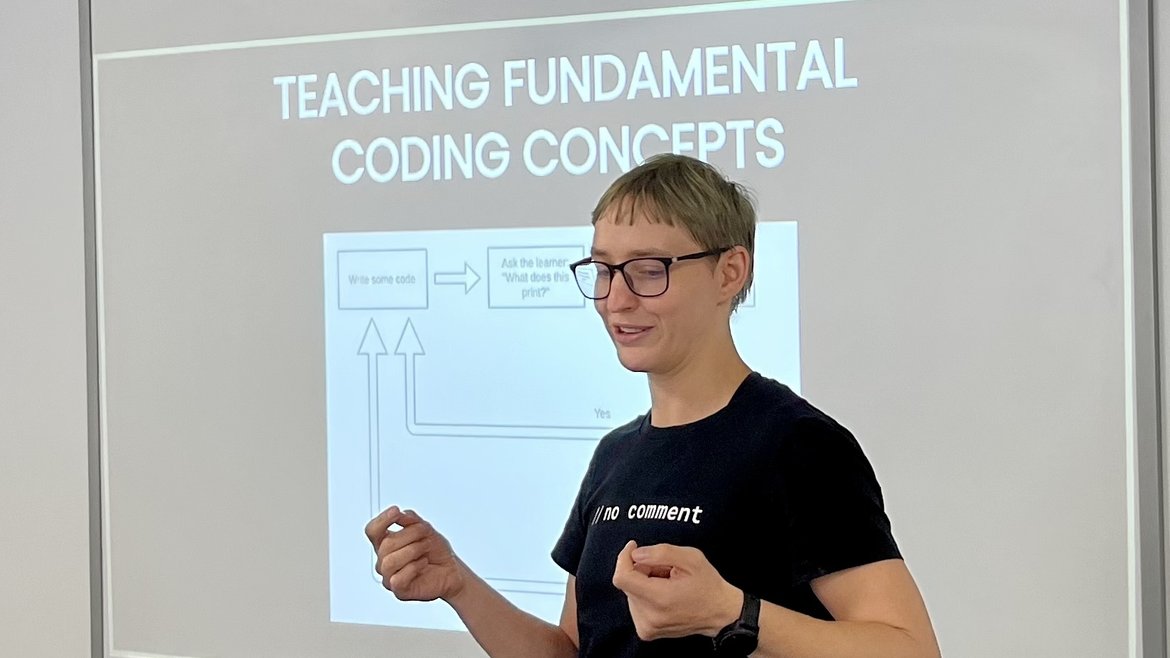
PyCon Namibia received warm support from NUST and its staff for the event, even extending to a lunch for all attendees in the restaurant of the hotel school at the University.
We will build on this success for future editions of the conference.
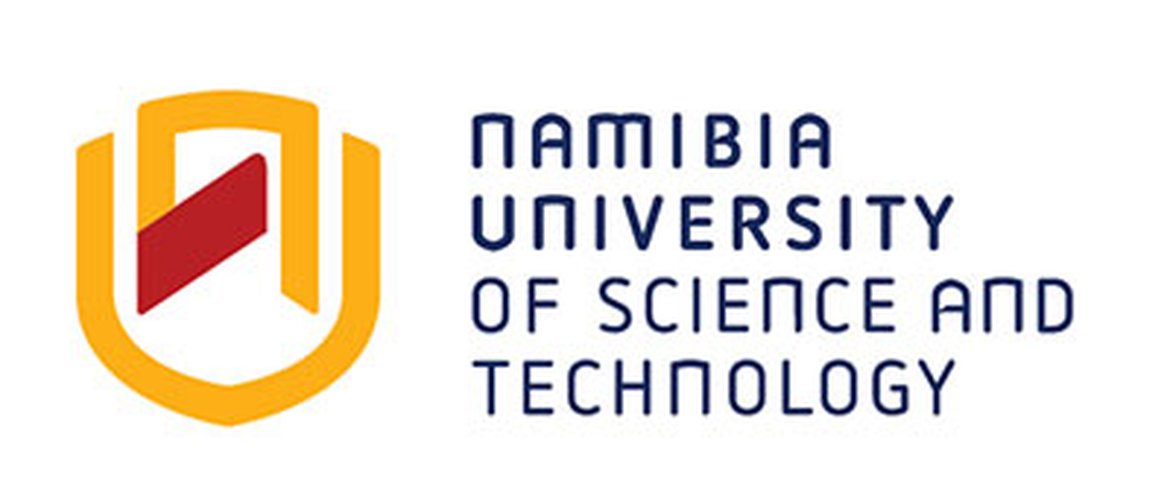
Day 2 - at Jakob Marengo secondary school
Day two, which we held at a secondary school in Windhoek, was possibly a first for any PyCon.
We wanted to make even more of our ambition to introduce Namibian high school learners to programming, so the events of this day took place at Jakob Marengo secondary school in Katatura, a township of Windhoek.
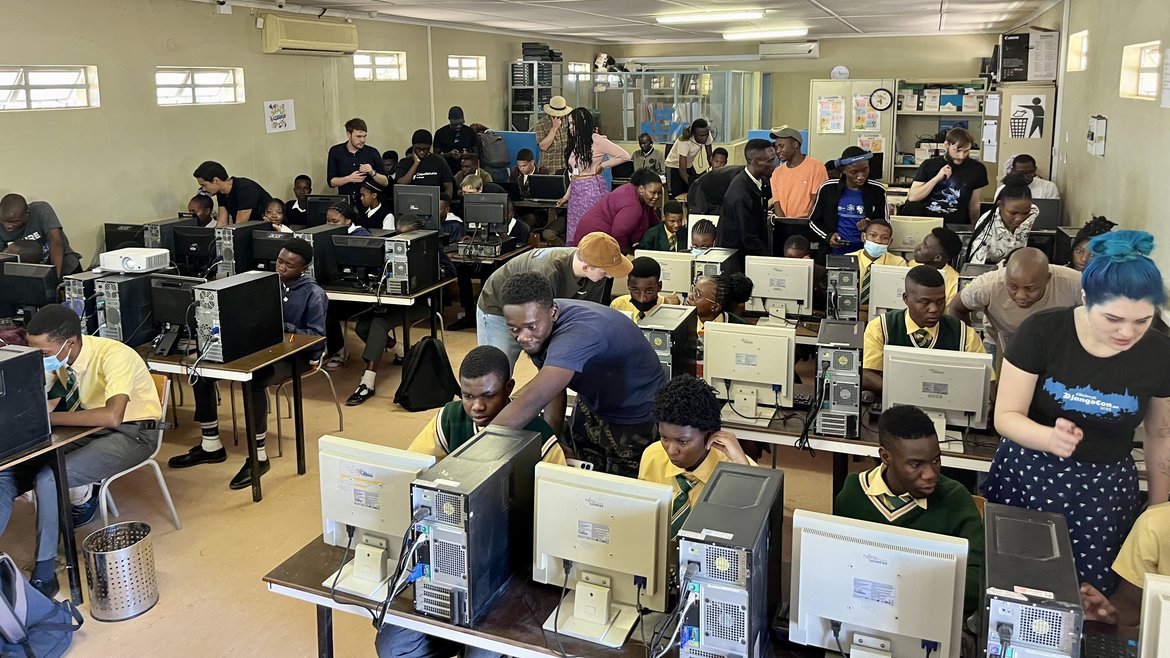
In the computer lab at Jakob Marengo school
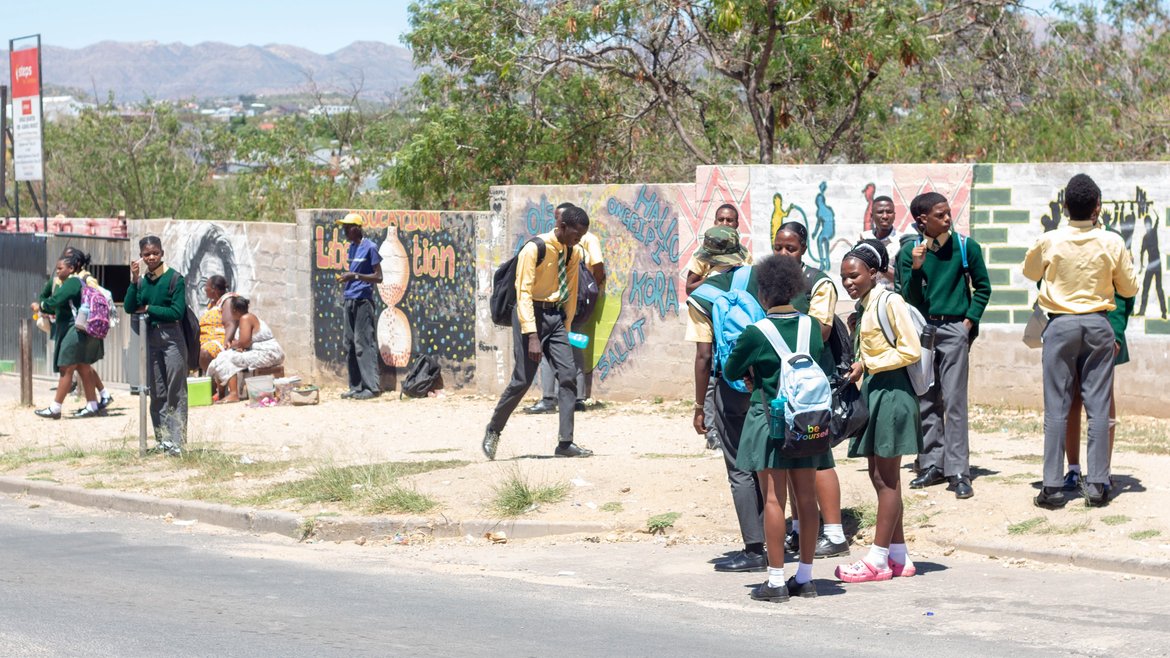
About Katutura
Katutura is a socially and economically disadvantaged part of the city. Its name means literally “the place we do not want to live”.
It was created under Apartheid in the 1960s, when thousands of black people were forcibly evicted from their homes and land.
Jakob Marengo school was founded in the 1980s by the anti-Apartheid activist Ottilie Abrahams, and serves pupils in the district. Like other schools in Katutura, it faces many substantial challenges.
PyCon NA has always had an educational agenda and has included pupils from Windhoek high schools for several years.
However this was the first time we were able to bring the opportunity to learners from Katatura, by taking it directly to them.
Pupils from other schools attended too, from Windhoek Technical High School, and xxx in Walvis Bay - who travelled 400km to get to the event, on their own.
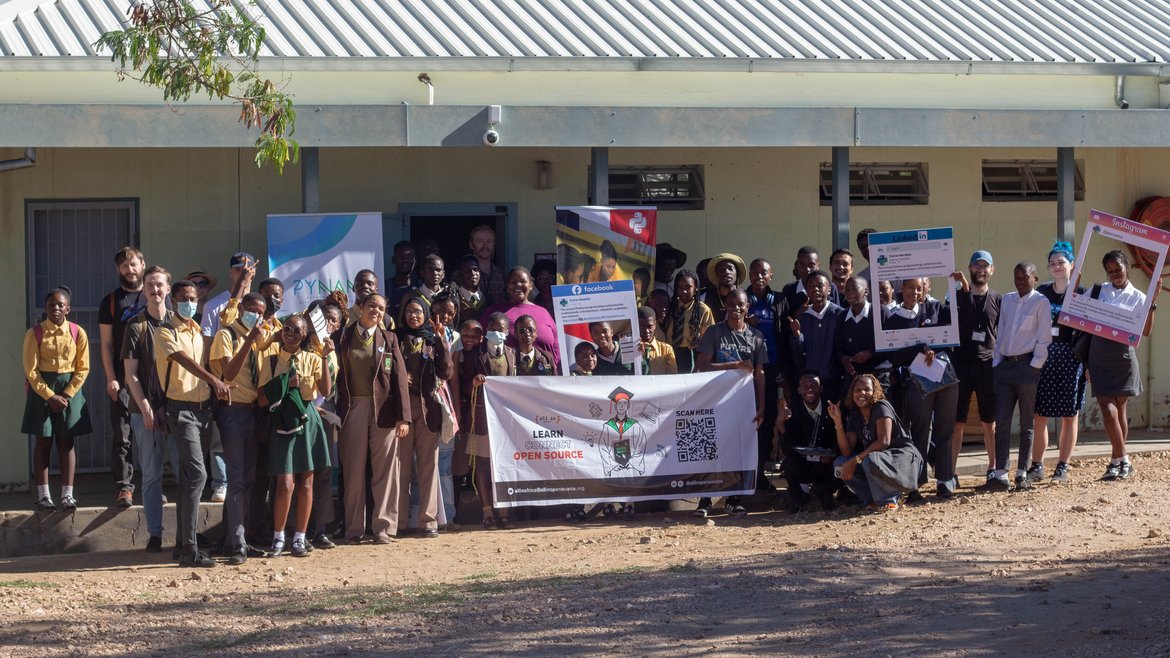
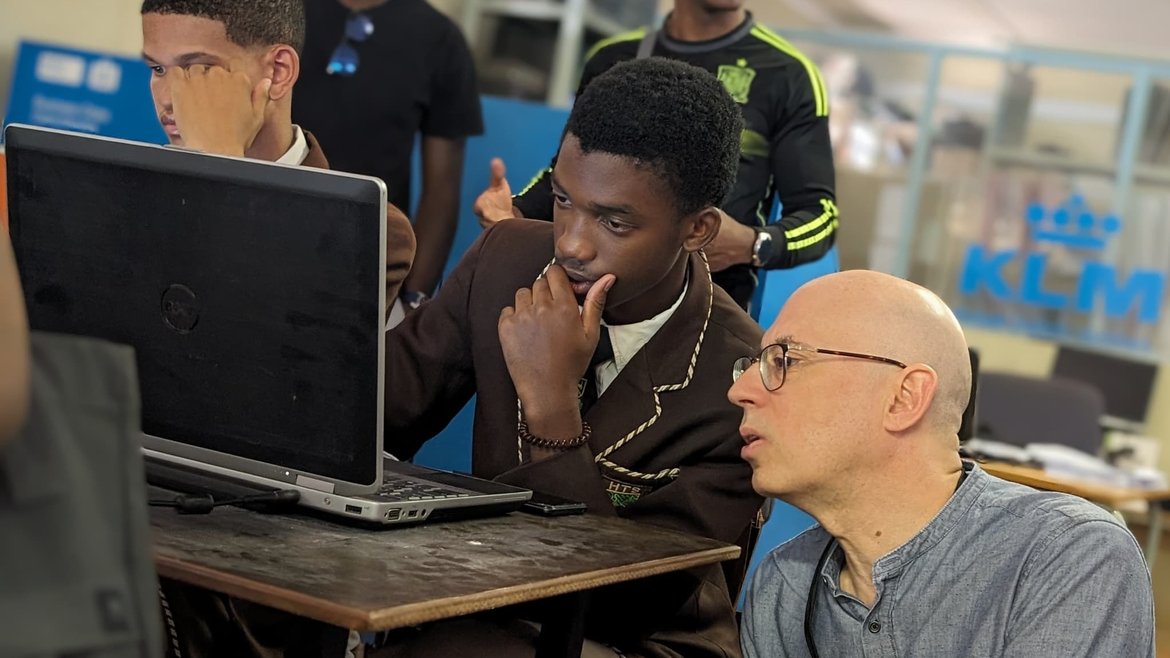
For the vast majority of the the school attendees, this was their first-ever experience of programming. Most of them would not have access to a computer outside school.
We started with a hands-on Python workshop introducing the absolute basics.
All the visiting speakers and many other attendees were pressed into service as coaches, including some of the university students from the first day (giving them an immediate taste of the open-source community participation that we wanted to introduce them to).
In the afternoon, we held a series of short talks on topics that would catch the imagination of the school pupils - Creating computer games with Python, Python for high school mathematics, Raspberry Pi animatronics.
As a final message for the young people at the school, the last session of the day was a call to action by someone who came from a similar background to them, and is now a successful software professional with an international career.
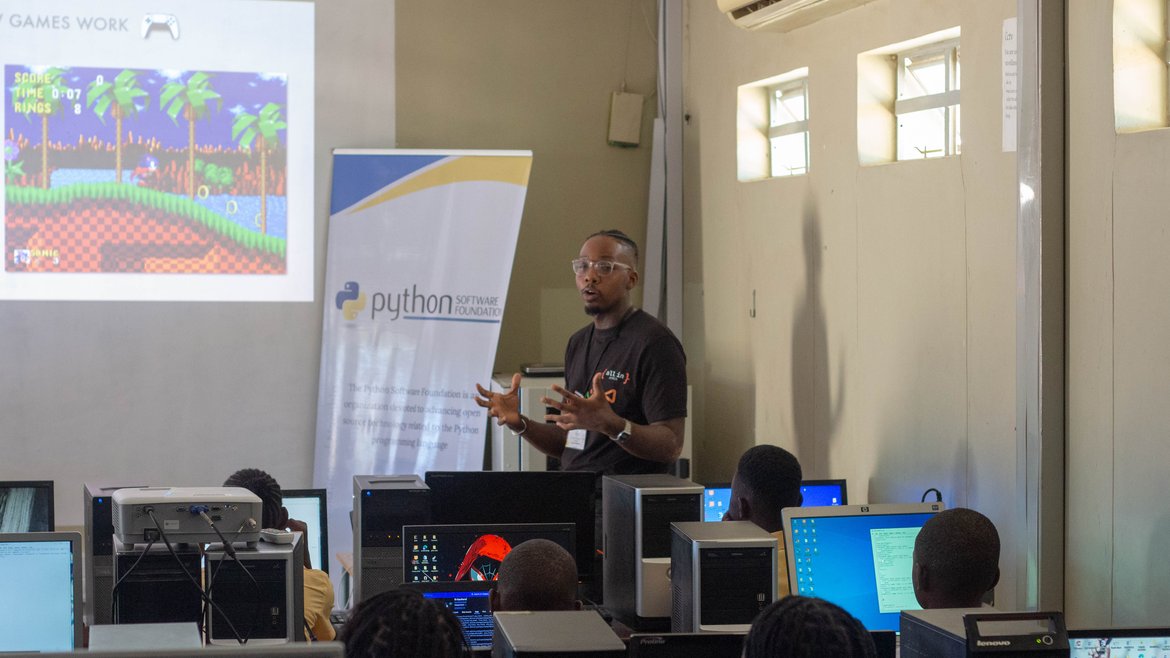
Kudzayi Bamhare telling the learners about creating games in Python
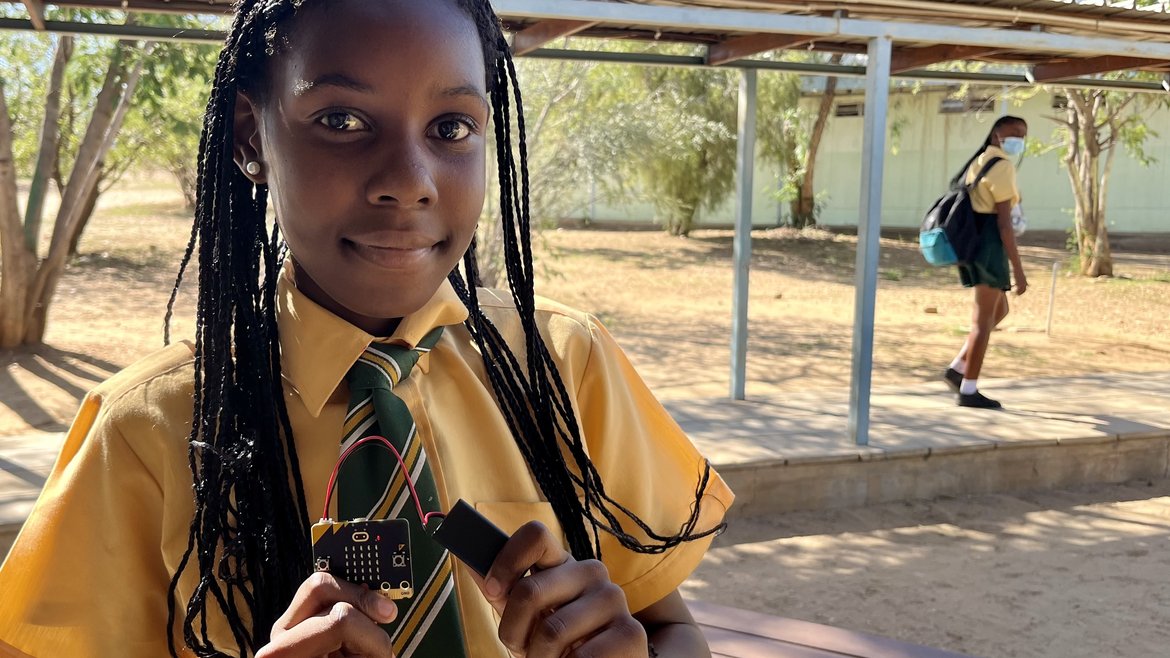
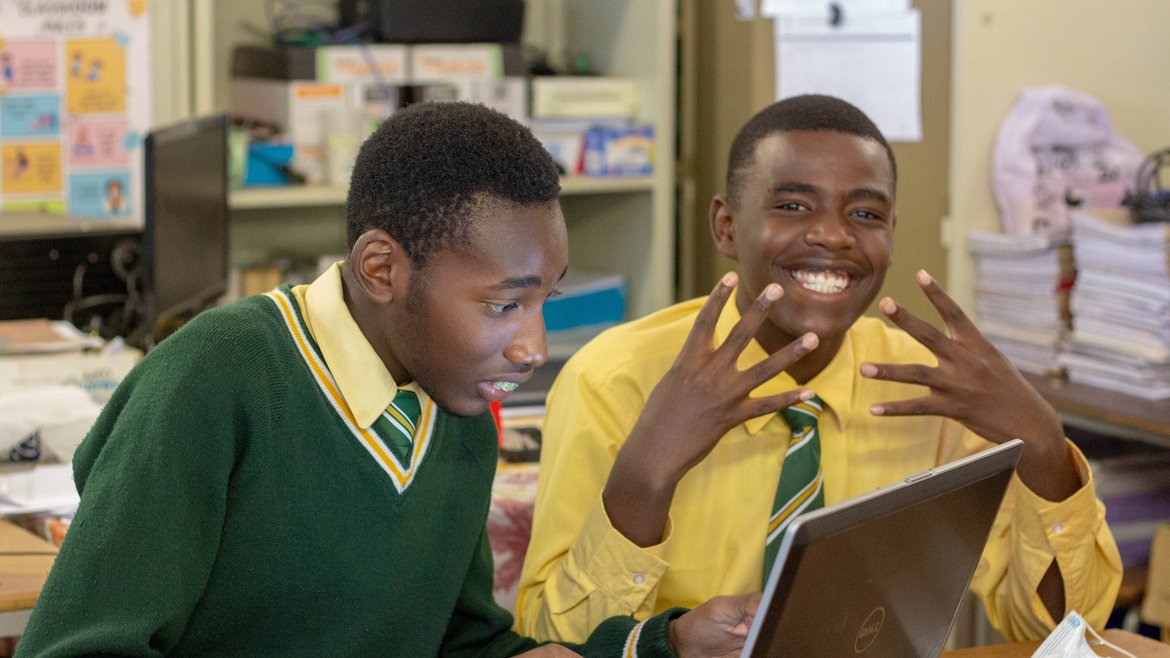
We received special support for the Education Days from the Python Software Foundation, that helped cover the extra costs of the event, as well as the purchase of the BBC micro:bit equipment we used in the workshops.
The micro:bits were also used in workshops over the next two days.
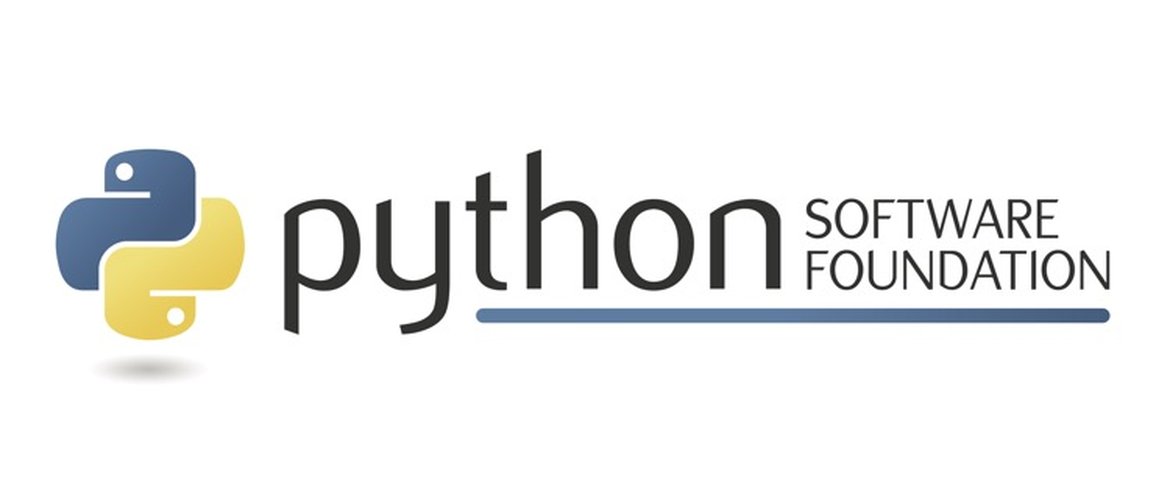
Days 3 & 4 - Goethe-Institut, Windhoek
Days three and four were our main conference days, held at the Goethe-Institut in Windhoek, for a wider audience.
We followed a more traditional PyCon format, with a full programme of talks and workshops on a wide range of Python-related topics.
Amongst others they included: teaching and learning, data science, deployment at scale, AI and ML, security, design, social challenges, web applications, community development.
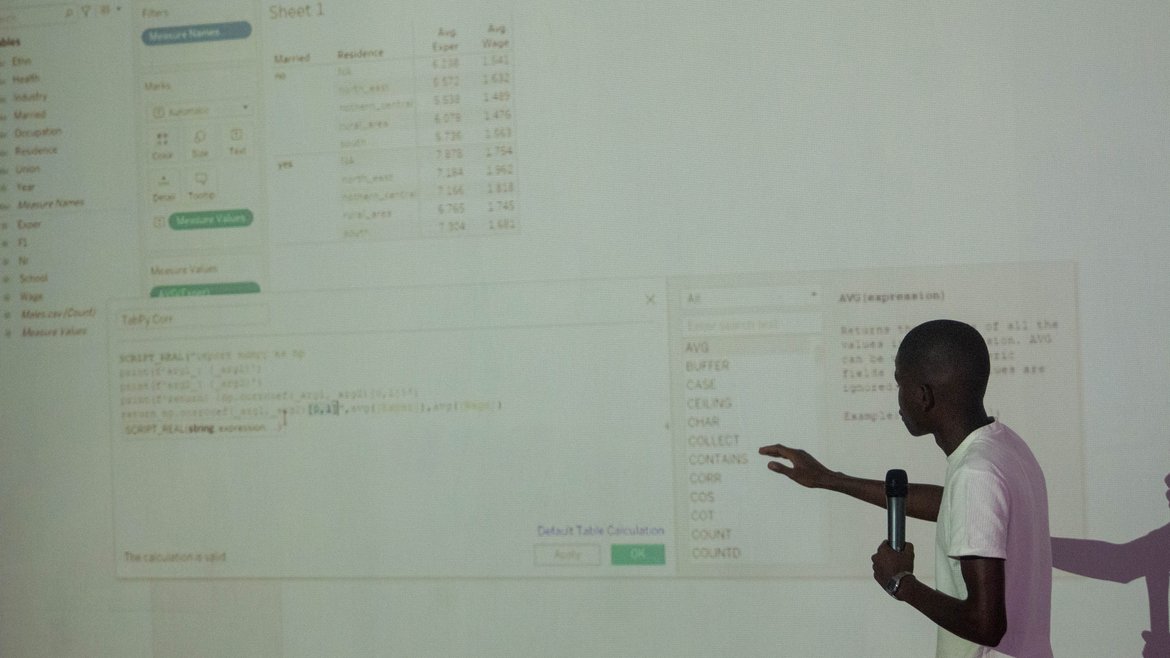
As usual, data science and analytics was a strong theme.
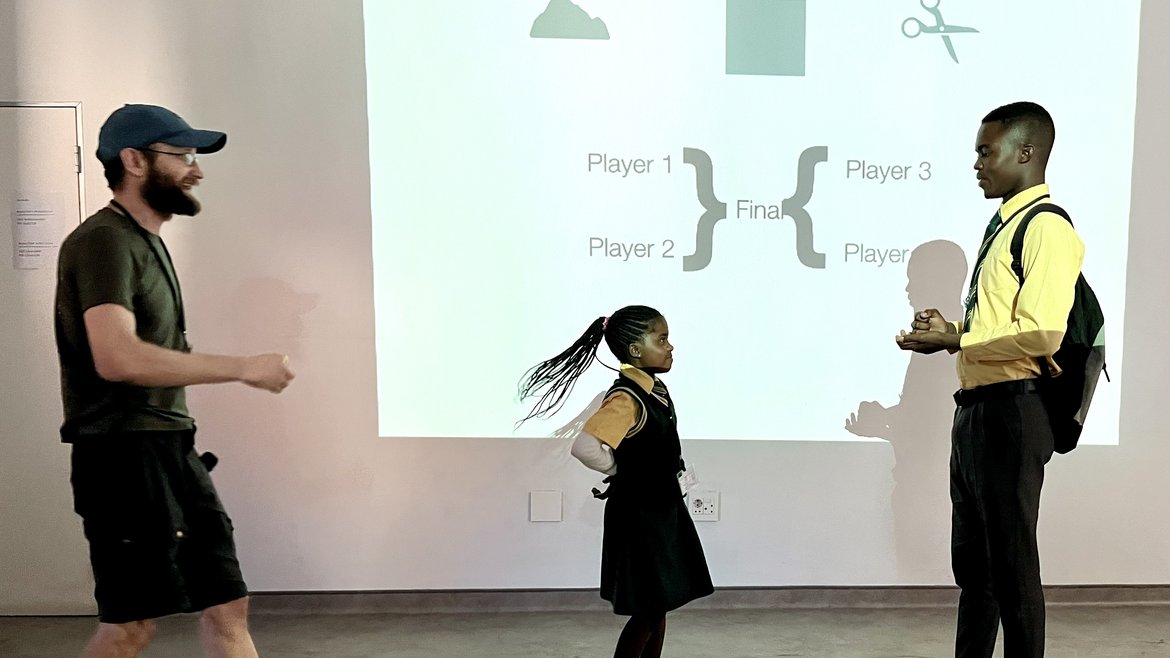
Exploring game theory in Python with scissors-paper-stone
One of the challeges for PyCon Namibia is that we bring together, in the same room at the same time, a vast range of technical experience.
Our speakers work hard to find ways to make the most difficult material engaging, so that even if not everyone is able to understand everything, they still get a meaningful glimpse of what it's about.
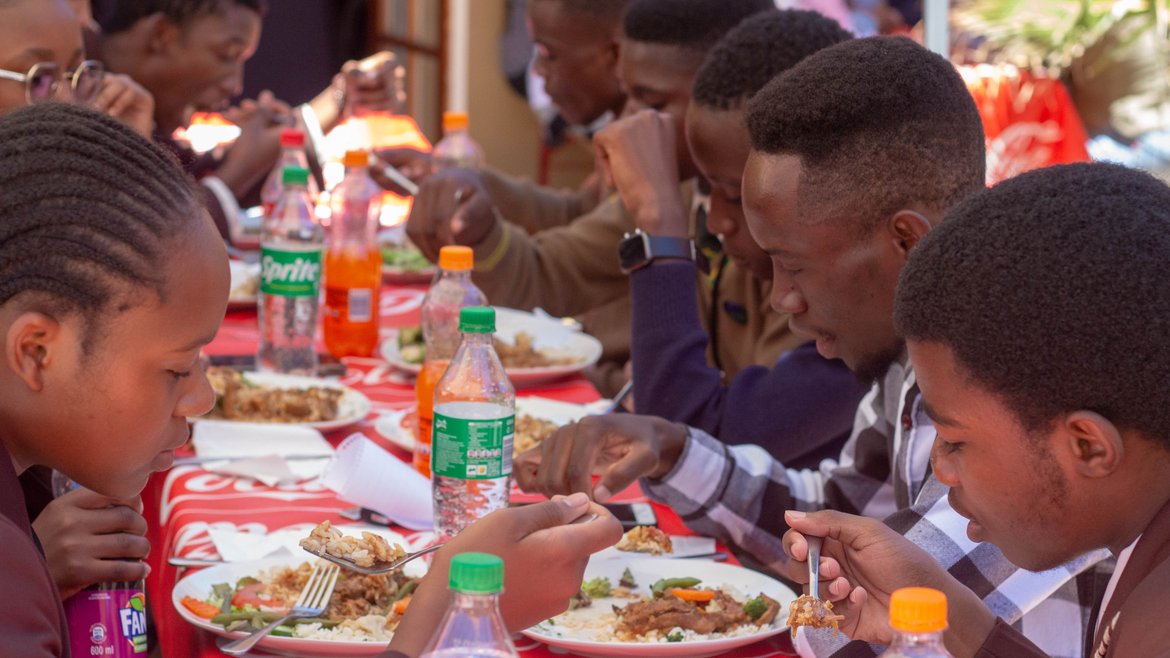
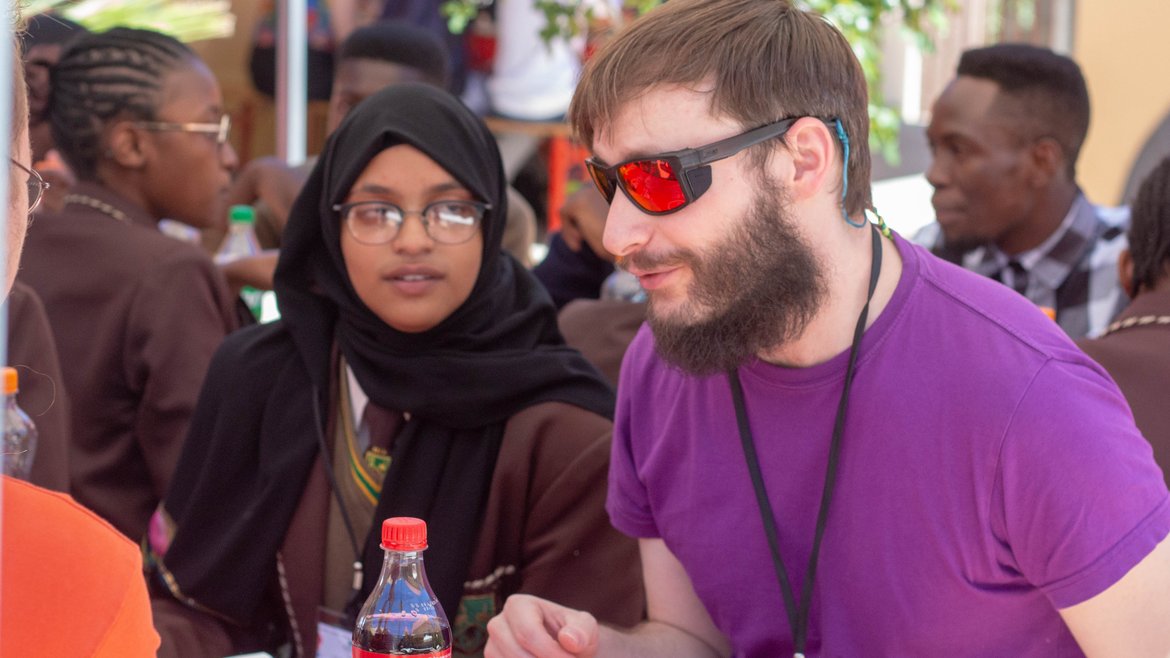
BBC micro:bit at PyCon Namibia
30 school learners came for the main conference days too. As well as attending talks, they participated in further Python workshops, using the BBC micro:bit equipment we purchased.
The micro:bit is a tiny, inexpensive (EUR 20) embedded system based on an ARM processor; it also includes hardware such as 5x5 LED display, accelerometer, microphone, speaker, physical buttons and and an edge-connector for external devices.

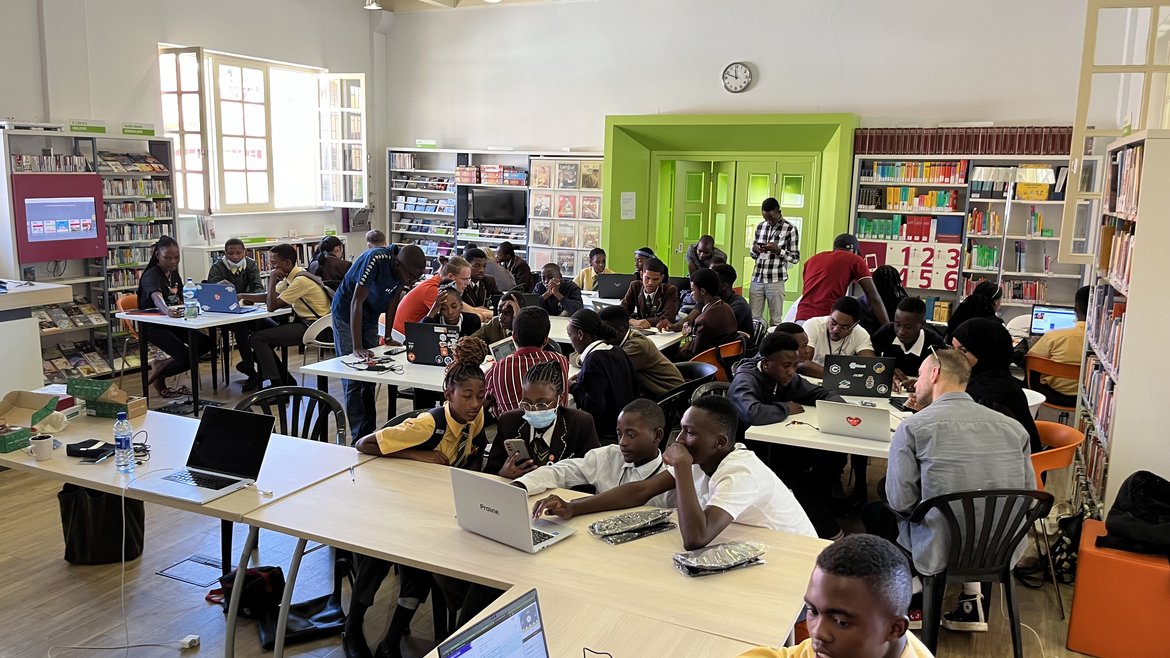
The micro:bit learning resources and projects are first-rate, and the micro:bits proved to be the perfect learning resource for our PyCon.
Coaches were on hand to help the pupils when required, and to challenge them to develop their ideas, but we found that the micro:bits inspired the learners to try new things and think their way through programming problems. They allowed them to take charge of their own discovery.
At the end of the conference, all the micro:bit equipment was distributed directly to students and teachers who took part, to leave them in their hands.
The self-contained nature of the devices (they even come with batteries) and the way the system as a whole reduces additional requirements for using them successfully to an absolute minimum means that they are likely to be actually used and explored in the months to come.
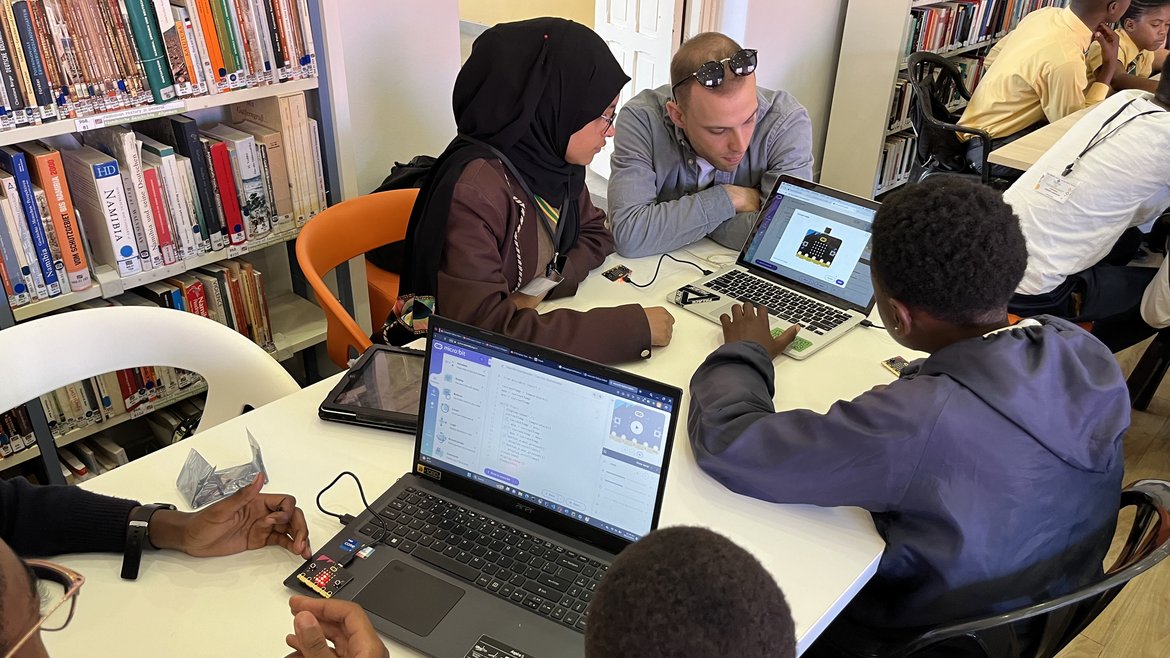
How we organised PyCon Namibia
PyCon Namibia is a non-profit event. Everything we achieved this year, as in previous years, was accomplished by unpaid volunteers who work in their free time.
To provide some financial context, this three-day event for over 90 people had a total budget of about USD 10'000 (NAD 185'000). Most of the conference budget was spent on catering. Approximately USD 3850 (NAD 70'000) was spent as financial assistance for speakers travelling from other countries in the region, and travellers within Nambia.
At the conclusion of the event, our overall financial balance was a less than USD 400 (NAD 7000). In other words, we were once again able to run PyCon Namibia without going into the red.
The financial balancing act is as difficult as ever. Once again, we relied on the great generosity of local supporters eager to support this Namibian initiative, who lent us their time and resources. They are part of what makes PyCon Namibia a true community event, that belongs and responds to its local community and relies on it.
A special thank-you goes to Jacob Marengo Secondary School, who lent us AV equipment and other necessaries.
Sponsors
PyCon Namibia once again received contributions in financial sponsorship and other support from organisations across the world. Many thanks to all our supporters.
Personal supporters
We're deeply grateful to the private individuals who support us, for personal reasons, from their own pockets.
We extend a special thank-you to our dear friends in the Czech Python community, who have helped us in many different ways since our first encounters.
